|
Thimpu Talks -
July/August 1985
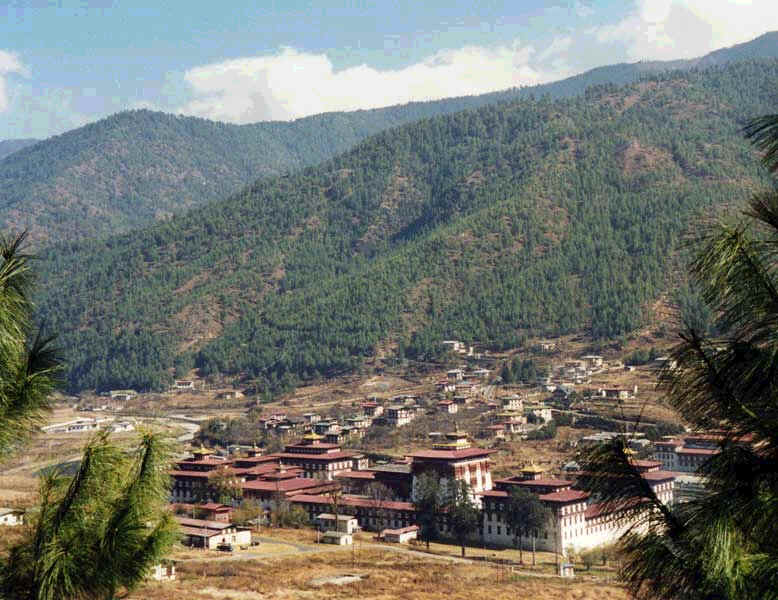 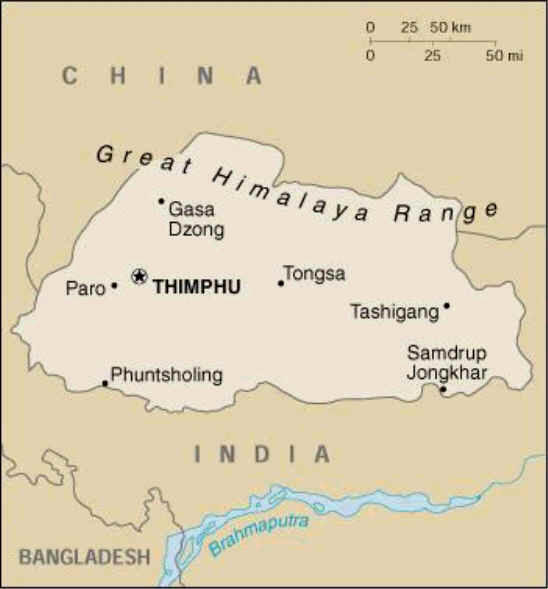
Introduction
In June 1985, at the initiative of the Government of India, the
leaders of the Tamil militant movements which were engaged in an armed struggle
for the establishment of a separate Tamil Eelam state in the North and East of
the island of Sri Lanka, agreed to a 'cease-fire' as a preliminary step to
creating a 'congenial' atmosphere for 'peace talks'. The talks, sponsored by
India, were held in Thimpu, the capital of Bhutan in July and August 1985.
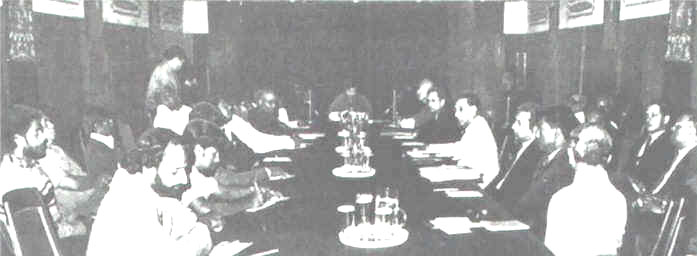
Inside the Meeting Hall - Phase 1 of Talks
Tamil Delegation on Left and Sri Lanka Delegation on Right
Phase I of the talks commenced on 8th July 1985 and concluded on 13th July
1985. Phase II of the talks commenced on 12th August 1985 and concluded on 17th
August 1985. The venue of the talks was Thimpu, the capital city of the
Himalayan kingdom of Bhutan.
The Sri Lanka Delegation to the Talks was led by Mr.H.W.Jayawardene Q.C. who
was a brother of Sri Lanka President J.R.Jayawardene who had been appointed by
the Sri Lanka President as a 'Minister' for the purpose of the talks. The other
members of the Sri Lanka delegation were three lawyers - Mr.H.L.de Silva
P.C., Mr.C. Seneviratne, P.C., Mr. Mark Fernando P.C., and Mr. S.L.Gunasekera,
Attorney at Law.
There were 6 advisers to the Sri Lanka delegation. They were - Mr.
G.V.P.Samarasinghe, Secretary to the Sri Lanka Cabinet of Ministers;
Mr.Bernard Tillekeratne, Sri Lanka High Commissioner to India; Mr.C.Mahendran,
Director General, Sri Lanka Ministry of Foreign Affairs; Mr. Tissa Jayakody,
Deputy High Commissioner for Sri Lanka in Madras, Mr.S.M.L. Marikar,
Additional Secretary to the Sri Lanka President; and Mr. Nalin Abeysekera, Legal
Draftsman. The Secretary to the Sri Lanka Delegation was Mr.E.F. Dias
Abeysinghe.
The Tamil Delegation consisted of representatives from the Liberation
Tigers of Tamil Eelam (LTTE), Eelam People's Revolutionary Liberation Front
(EPRLF), Tamil Eelam Liberation Organisation (TELO), Eelam Revolutionary
Organisation (EROS), Peoples Liberation Organisation of Tamil Eelam PLOTE)
and Tamil United Liberation Front (TULF). The LTTE, EPRLF, TELO and EROS
were also constituent members of the Eelam National Liberation Front.
|
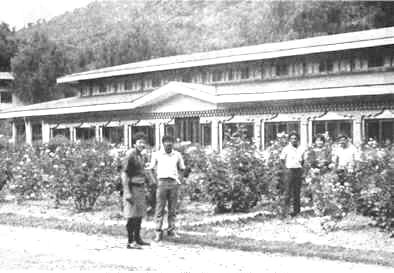
Lawrence Thilagar, LTTE in centre
in front of the Meeting Hall in Bhutan
|
In Phase I of the talks Mr.Anton and Mr. Lawrence Thilagar represented
the LTTE.
Mr.A.Varadarajah Perumal and Mr.L.Ketheeswaran represented EPRLF.
Mr.Charles Antonidas and Mr.Mohan represented TELO.
Mr.
Rajee Shankar and Mr.E.Ratnasabapathy represented EROS.
PLOTE was represented by Mr.Vasudeva and Mr.Dharmalingam Sitharthan.
The TULF delegates were Mr.M.Sivasithamparam,
Mr.A.Amirthalingam and Mr.R.Sampanthan.
In Phase II there was one change in the composition of the Tamil
delegation -
Mr.Nadesan Satyendra
and Mr. Charles Antonidas represented TELO.
The Thimpu negotiations represented a watershed in the Tamil Eelam
struggle for more reasons than one.
Firstly, the recognition accorded to the armed resistance movement
by both the Sri Lankan government and the Indian government and the open
participation of the representatives of the armed resistance at negotiations
with accredited representatives of the Sri Lankan government, furthered
the legitimisation of the armed struggle of the Tamil people in the
international arena.
Secondly, the Declaration made by the Tamil delegation at Thimpu, which
has come to be known as the
Thimpu Declaration, and the
statement made by Nadesan
Satyendra at the Talks on 14 August 1985 and the
Joint Response of the Tamil Delegation on 17 August 1985, served to
crystallise the central issues of the Tamil struggle and provide a
mobilising platform for the continuation of the struggle.
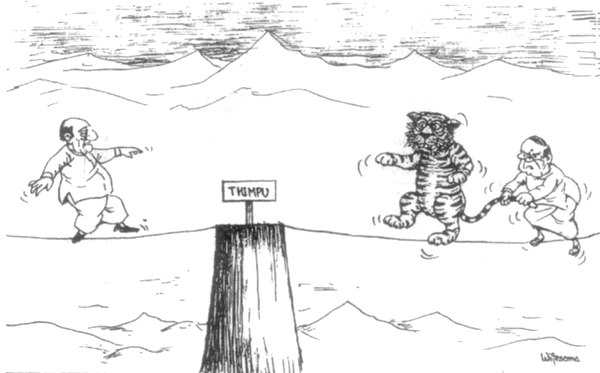
The Tight Rope Walk...
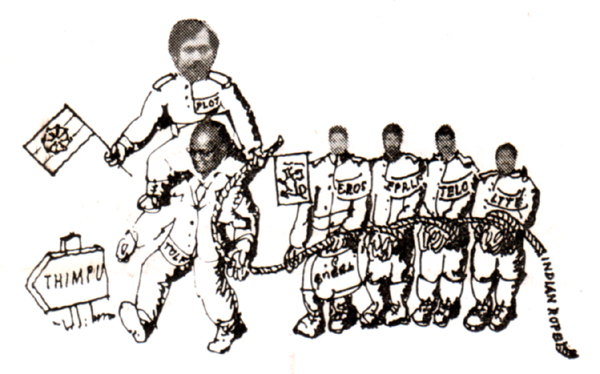
Indian Rope - S.A.David
|